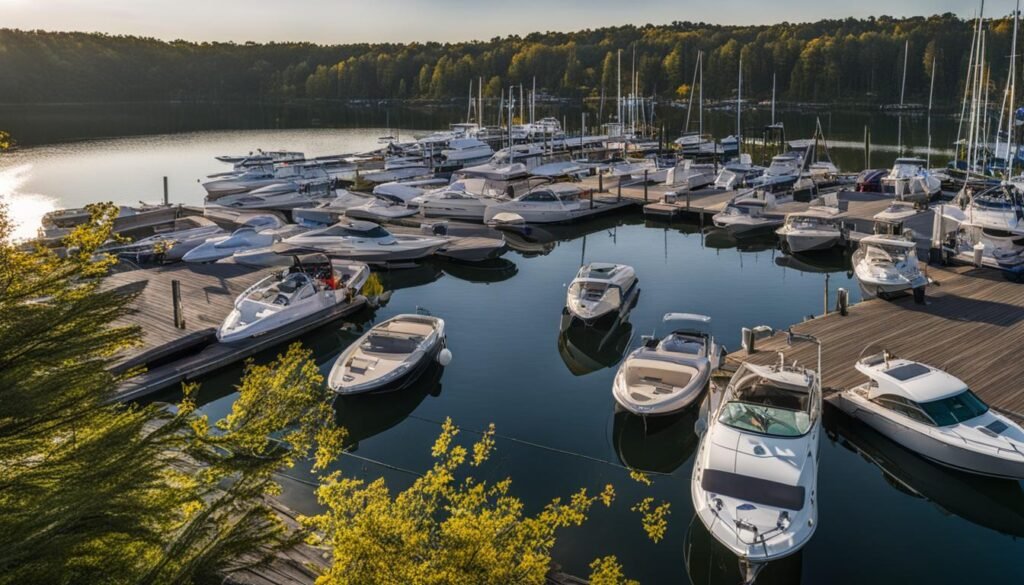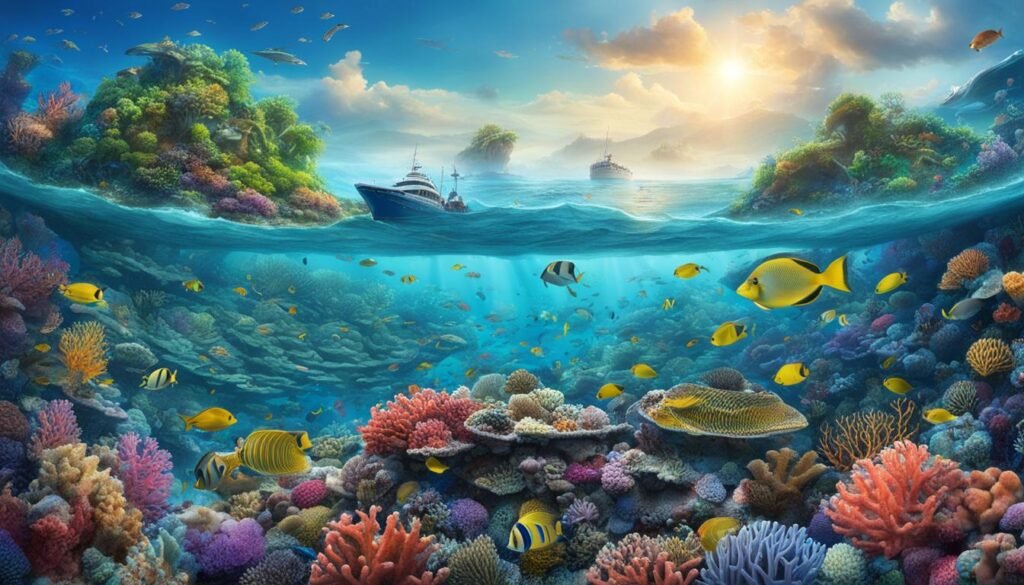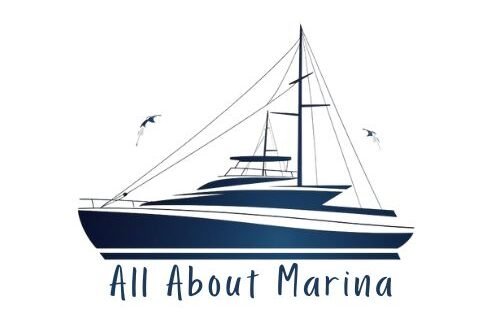Marina Etiquette101: How to Be a Respectful Boater

Understanding Dock Etiquette
Being Mindful of Boat-Wake Etiquette
When it comes to boating, it’s not just about enjoying the water; it’s also about being considerate of others. One aspect of this is boat-wake etiquette, which involves minimizing the wake created by your vessel and navigating responsibly to avoid disturbing other boats and docks.
To ensure you’re practicing proper boat-wake etiquette, keep the following in mind:
- Minimizing boat wake: Boat wakes can cause damage to other boats and docks, so it’s important to keep them to a minimum. To do this, maintain a steady speed, avoid sharp turns, and be mindful of the size of your vessel.
- Navigating responsibly: When navigating in high traffic areas, be aware of other boats and follow the proper protocol for passing and overtaking. This includes keeping a safe distance from other vessels and reducing speed when necessary.
By adopting these practices, you can help create a peaceful and safe environment for all boaters at the marina.
Remember, being a responsible boater goes beyond just boat-wake etiquette. It’s important to know and follow all boating rules and regulations, including those outlined by the United States Coast Guard.
Boating in No-Wake Zones
It’s also important to note that some areas may be designated as no-wake zones, where boats must travel at a slow speed to avoid creating any wake. This could be due to proximity to docks or marinas or to protect sensitive wildlife and habitats.
If you’re unsure whether an area is a no-wake zone, look for signs or check local boating regulations. It’s always better to err on the side of caution and navigate slowly in these areas.
By minimizing boat wake and navigating responsibly, you can help create a safe and enjoyable environment for everyone at the marina.
Respecting Wildlife and the Environment
As a responsible boater, it’s essential to understand the importance of respecting wildlife and the environment while enjoying your time on the water. By practicing environmental stewardship and being mindful of the impact your actions have, you can help preserve the natural beauty of the marina and protect marine life.
When boating, always follow the guidelines for proper waste disposal to avoid polluting the water. Refrain from throwing garbage or fishing line overboard, as these items can harm marine animals and disrupt their habitats.
In addition, be careful when navigating near sensitive areas, such as seagrass beds, mangroves, or bird nesting sites. These areas are crucial for the survival of many species, so avoid disturbing them whenever possible.

To enjoy marine life safely and respectfully, practice responsible wildlife viewing. Keep a safe distance from wildlife, and avoid touching or feeding them. If you encounter a marine animal in distress, such as a stranded sea turtle or a tangled bird, contact the proper authorities for assistance instead of attempting to help on your own.
By adopting a mindset of environmental stewardship, you can help protect the natural beauty of the marina and promote sustainable boating practices for years to come.
Communicating Effectively with Other Boaters
Effective communication is critical in maintaining safety and cooperation among boaters. Whether you’re sailing in open waters or docking at the marina, understanding and utilizing boating signals and radio etiquette can go a long way in preventing accidents and ensuring smooth operations.
When communicating with other boaters, keep in mind the following tips:
- Use proper boating signals to indicate your intentions, such as turning, slowing down, or stopping. Be sure to also understand the signals of other boaters and respond accordingly.
- When using a marine radio, adhere to proper radio etiquette by keeping your messages brief, clear, and professional. Use standard phrases and avoid slang or jargon that may be unclear to others.
- Before transmitting a message, listen to the radio channel to ensure you’re not interrupting another conversation. When finished speaking, say “over” to signal that you’re done and awaiting a response.
- Be aware of the frequency you’re using and switch to an appropriate channel for your location and type of communication.
By following these guidelines, you can enhance communication on the water and promote a safe and harmonious environment for all boaters.
Being Considerate of Others’ Space
As a responsible boater at the marina, it’s important to be mindful of others’ personal space. Whether you’re navigating near other vessels or docking at the marina, following proper etiquette can help create a friendly and cooperative atmosphere among fellow boaters.
Respecting Personal Space
When navigating in crowded areas, it’s essential to respect the personal space of other boaters. Keeping a safe distance and maintaining a moderate speed can help prevent accidents and avoid disturbances. Additionally, when docking, it’s important to take into consideration the space of neighboring boats and use proper mooring techniques to avoid damaging any vessels.
Proper Navigation
Effective navigation is a crucial part of being considerate of others’ space. When approaching another vessel, consider the direction and speed of both boats to ensure a safe passing distance. If possible, signal your intentions with the appropriate boating signals and communicate clearly with the other boater.
Docking Etiquette
When docking at the marina, it’s important to follow proper etiquette to avoid causing disruptions and respecting the personal space of other boaters. Take into consideration the space of neighboring boats and use proper mooring techniques to maintain a safe distance between vessels. Avoid loud noises and aim to keep the area clean and tidy for everyone’s enjoyment.
By following these practices, you can become a more considerate boater and foster a positive atmosphere at the marina. Remember to respect personal space, navigate responsibly, and follow proper docking procedures to ensure a safe and enjoyable experience for everyone.
Sharing Amenities and Facilities
When visiting a marina, it’s important to remember that the facilities and amenities are shared spaces for all boaters to enjoy. By respecting these spaces, you can help to promote a friendly and cooperative atmosphere at the marina.
Proper Use of Marina Facilities
One of the most important aspects of sharing amenities and facilities is using them properly. Whether you’re using the fuel docks, pump-out stations, or common areas, it’s essential to follow any rules or guidelines posted at the marina. This not only ensures your safety but also helps to maintain a clean and organized marina for everyone to enjoy.
Considering the Needs of Others
Another crucial aspect of sharing amenities and facilities is considering the needs of others. For example, if the fuel docks are especially busy, try to move your boat as quickly as possible to make room for others. When using common areas, such as picnic tables or grills, make sure to clean up after yourself and leave the area as you found it.
Respecting Shared Spaces
Ultimately, respecting shared spaces is about being considerate and cooperative with your fellow boaters. Whether you’re docking your boat, navigating through crowded areas, or simply enjoying one of the marina’s amenities, it’s important to prioritize the needs and comfort of others. By doing so, you can help to create a welcoming and enjoyable environment for everyone at the marina.
Remember, sharing amenities and facilities is an important part of being a responsible and considerate boater. By following these guidelines and practicing good etiquette, you can help to ensure a positive experience for yourself and your fellow boaters at the marina.
